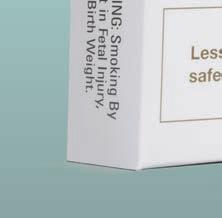
1 minute read
After capping insulin copays, states sets sights on EpiPens
Cap at $60
BY HELEN SANTORO KAISER HEALTH NEWS

Almost four years after becoming the rst state to cap insulin copayments, Colorado may limit what consumers pay for epinephrine autoinjectors, also known as EpiPens, which treat serious allergic reactions.
A proposed state law would cap out-of-pocket copays at $60 for a two-pack of epinephrine autoinjectors. In 2007, the wholesale price of a single EpiPen was about $47. Today, two brand-name autoinjectors cost just under $636 at a Walgreens in Denver, according to GoodRx. At some pharmacies a generic pen sells for $100 to $200, which is still expensive for many people. e bill is the latest example in a nationwide push by states to address the soaring prices of lifesaving drugs. New Hampshire passed a law in 2020 requiring insurance to cover the autoinjectors, and Rhode Island lawmakers are considering a similar measure this year. No state has capped what consumers pay for EpiPens, though the New Jersey Senate passed a bill in June to do so; that measure is pending in the legislature’s lower house. e average launch prices of drugs in the United States increased nearly 11% every year from 2008 to 2021, according to a study published last year. Price increases can skyrocket even higher for items such as epinephrine autoinjectors, a market dominated by EpiPen maker Viatris, a global pharmaceutical company.



“If you have very little competition in the market, the way the U.S. drug pricing system works is that the manufacturers get to set the price at which they want to sell the drug, and they can increase it whenever they so choose,” said Erin Taylor, a senior health care policy researcher at Rand Corp., a global policy think tank. “One way to shift costs back to health plans and manufacturers, and to help patients pay less for their drugs, is to apply these caps.” e Colorado legislation would cap EpiPen copays for both insured and uninsured people starting in 2024. Almost 566,000 Coloradans have life-threatening food allergies, according to the bill. People can also have severe reactions to insect bites, medications, and latex.

“ e need for EpiPens doesn’t discriminate based on who you are,” said state Rep. Iman Jodeh, a Democrat who is sponsoring the bill. “ is unfortunate trend we were seeing of lifesaving medication being completely unattainable or out of reach










